Everything’s going to be alright… right?

Try as we may not to be a Debbie Downer in our March reflections, I do not believe it serves anyone to turn away from the news of the day for the sake of celebration or ignore the realities we live in to prop up a happy narrative of prosperity, development, and the quality of life.
As I write this, the nation is reeling from the effects of a devastating fire that broke out in a major building on Bailey Road in the capital, a road known as one of the city's hotspots for dining and entertainment. In total, 46 lives have been claimed by the fire, most of them young people who should have had the whole world ahead of them. At least one three-year-old child perished. Imagine being burnt or suffocated to death on what was supposed to be a happy night out in town. Imagine being blindsided with the news that your child or your sibling is dead—gone forever—not in a war where life is known to be on the knife edge, but in this very average urban spot full of restaurants in the capital city of a country supposedly marching towards development.
After finding our footing from the initial shock, grief, and anger, we ask the pertinent questions: why did this happen? Who was responsible for this? And then our rage is compounded by the knowledge that all of this was preventable. Fire safety was not up to code, the building was poorly and thoughtlessly constructed, enforcement from the authorities was lacking and, as always, once the fire started, the fire services were only able to accomplish too little, too late. At the root of all this misery is bad governance. With officials looking the other way, and bribes smoothing over just about any issue, Dhaka has become a city of death, and we always seem to be living in perpetual anxiety about the next fire. This is not the first time I am finding myself writing about deadly fires, either, and I'm fairly sure it won't be the last.
Now, you tell me, how does one enjoy the fruits of development when peace of mind is gone for good? When the anguished cries of the lost souls just won't stop, and the demand for accountability goes ignored day after day, year after year, while newspapers (which are little more than PR agents for the government) bring out glossy supplements that tell us, against the evidence of our own eyes and scorched flesh, that everything is fine, that everything is alright, that everything is going to be alright?
March is the month of independence for Bangladesh. It was on March 26, 1971 that Bangladesh declared its independence from Pakistan. A brutal, bloody nine-month war followed and, in December 1971, Bangladesh achieved victory. Every schoolchild knows this history, and consequently, every schoolchild is bombarded with a narrative of nation-building. Every discussion, every point of contention comes back, over and over again, to the idea of patriotism—or its ethically complicated cousin, nationalism. Furthermore, all roads go back to the Liberation War, and with a certain fixation on the mythography of the past, we forget to properly take care of the present or plan for the future.
What really is independence, anyway? It is a country's ability to take care of itself, treat its citizens with foresight and wisdom, and operate the machinery of government in a way that shows that it is capable of serving and protecting its people. When a young adult becomes "independent" and moves out of their parents' home, it is a marker of maturity, and capability; an assertion that the child is now capable of keeping themselves safe and has no need for adult supervision. Is Bangladesh an adult? Bangladesh is now 53 years old. In the lifetime of a human being, that would be considered peak middle age. But the lifespan of nations is much longer (though not infinite, even while it may sometimes appear so). A 53-year-old nation is an infant among nations, and there is a long way for Bangladesh to go. In order to do that though, our house needs to be in order and our priorities need to be reevaluated. A botched infancy does not bode well for a successful adulthood. So, how do we get back on track?
This starts with telling the truth about problems on the home front instead of playing a game of distractions, giving importance to everything else (from sports to geopolitics) while ignoring the issues which sink us. It's tempting to rail against Western hypocrisy or engage in a bout of whataboutism ("Why make such a fuss about our fire safety when deadly fires have broken out in the UK as well?"), but these are just ways for politicians to blow a lot of smoke and avoid addressing the real issues. The fact that bad things happen in other countries is no excuse to turn a blind eye when they happen here. The fact that high levels of corruption and negligence exist among public officials elsewhere, say, in more developed nations of Southeast Asia or East Asia, is no excuse to dismiss the same here. The fact that Western democracies are imperfect machines with plenty on their conscience does not mean we should not strive for true democracy and accountability here in Bangladesh.
Recently, I was at a panel discussion in Dhaka with a number of high-profile speakers present. One of the panellists, a well-known academic, launched into a blustering rant against the fear-mongering of newspapers, arguing that the media overhyped how bad everything is here in Bangladesh. At one point, he confidently claimed Dhaka was actually "safer" than a couple of top US cities. He also made the jaw-dropping claim that democracy aided, rather than curbed, the rise of fundamentalism, and that the important thing a regime needed to do in order to develop a country was to "stay in power." Most of the room, composed of educated, sensible people, were gasping in disbelief at such naked advocacy for authoritarianism, and such unnecessary references to foreign cities—from a professor, no less. But this calibre of thought, tragically, is what passes for intellectualism in Bangladesh.
The cold, hard fact is that Dhaka, our beloved capital and largest city, is one of the most unliveable cities in the world. This is not propaganda or fear-mongering from the newspapers, it is the lived reality of its residents—except for the extremely privileged at the top. Our air is toxic, our roads and highways are death traps, and our fire regulations are the worst in the world. We do not need newspaper reports on the AQI to tell us it is hazardous to breathe in this city—we can feel it ourselves. Wide-scale tragedies resulting from fires breaking out have been normalised to the point where a major building burning down feels like a minor incident—so jaded are we with the brutality. I myself, in my days as an opinion editor, have been forced to write countless editorials about these fires. The words flow as if from muscle memory; I have had so much practice addressing tragedies. Chawkbazar, Banani, Mirpur, Bailey Road, they keep on happening, innocent lives taken away in the most horrific manner. And what do the authorities do? Dodge accountability and play blame games. Nothing gets fixed.
At this point in our history, with as much baggage as we carry, shallow fixes won't do. Our 53-year-old nation needs to reach into its soul and change—really change for the better and not just on paper or in cooked-up development narratives—if it wishes to make good on the promises made during our independence. But like any addict on the first day of recovery, we must first acknowledge and admit that we indeed have a problem.
Abak Hussain is a writer and editor, formerly editor of Editorial and Op-Ed at Dhaka Tribune, and currently contributing editor at MW Bangladesh.
Views expressed in this article are the author's own.
Follow The Daily Star Opinion on Facebook for the latest opinions, commentaries and analyses by experts and professionals. To contribute your article or letter to The Daily Star Opinion, see our guidelines for submission.
.

 For all latest news, follow The Daily Star's Google News channel.
For all latest news, follow The Daily Star's Google News channel. 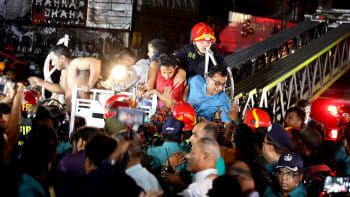




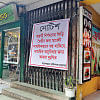
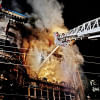
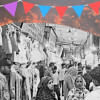

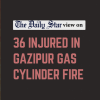

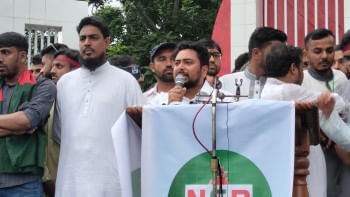
Comments